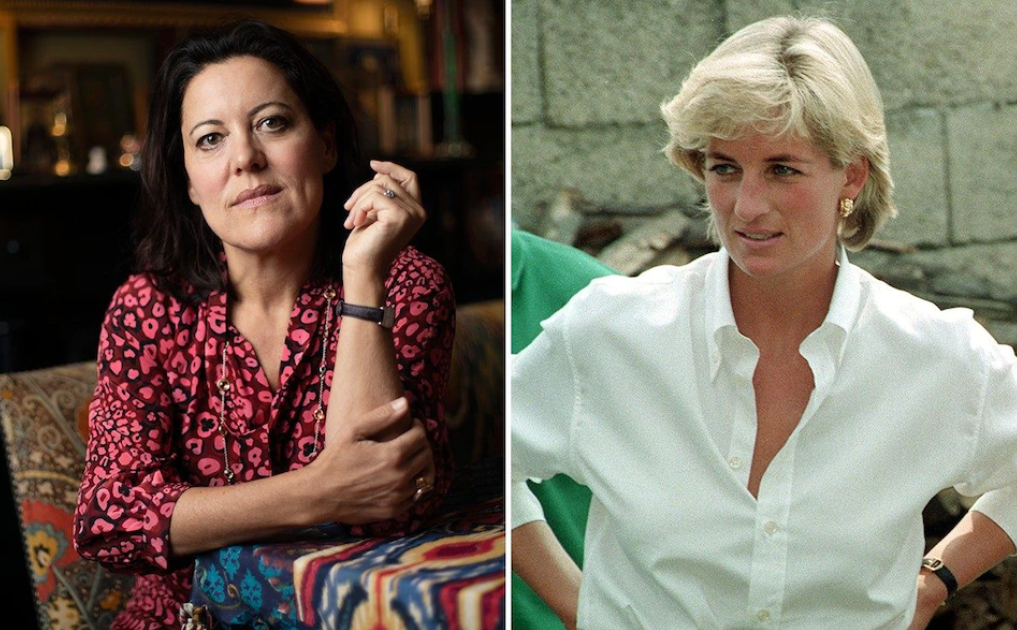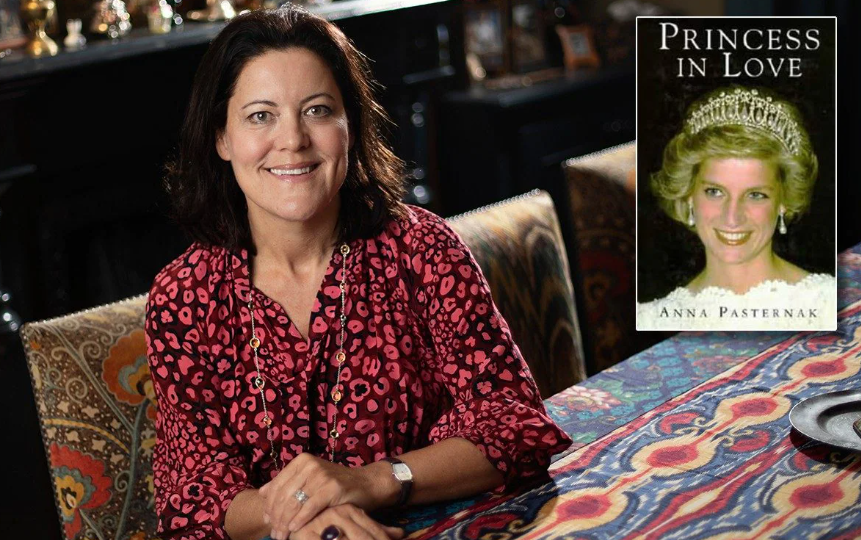


As controversy reigns over The Crown, the author of Princess in Love looks back at the frenzied furore that surrounded her book
It has become an annual event: the nation whips itself into a frenzy over The Crown, then binge-watches the series (of which season five is on Netflix from Wednesday, November 9). So contentious has its portrayal of the Windsors become that Netflix has added a disclaimer to the trailer for season five, which starts next Wednesday, stating that it is a “fictional dramatisation… inspired by real events”.
In particular, writer Peter Morgan is being attacked for his sympathetic portrayal of Princess Diana. I know how he feels. When I published my book, Princess in Love, in 1994, detailing Diana’s five-year affair with James Hewitt, I was met with a tsunami of censure from people saying it was a load of overwritten, sensationalist rubbish.
I suspect Morgan regards the current criticism as water off a duck’s back. But, when I was the target I was completely unprepared and emotionally unsuited to the astonishing fervour of sentiment any depiction of the wronged princess created.
Three decades ago, everyone had passionate opinions about Diana, so to challenge them provoked an excoriating backlash. As well as becoming the lightning rod for the public’s fury that Hewitt had “kissed and told”, people projected their profound dismay that the royal marriage was not the fairytale we had believed it to be on to me. The experience after writing Princess in Love was so eviscerating, it took me 20 years to recover.
I had met Hewitt socially in 1993, when I was 26 and a journalist. At the time, he was reeling, adrift, as he had been reportedly discharged from the Army after 17 years in the Household Cavalry due to rumours of his close correspondence with Diana. It had been reported in the gossip columns that he had taught William and Harry to ride and that Diana had written to him when he served as a tank commander in the Gulf War.
They had met at a drinks party in 1986. At Hewitt’s behest, I wrote an anodyne series of articles for The Daily Express about his friendship with Diana, detailing how she did the washing-up at Hewitt’s mother’s cottage. Hewitt told me that he was only speaking to me because Diana had asked him to – although the series never hinted at an affair, it just showed them as good friends. Diana was in constant contact with him during this time. He said that she thanked him on the phone for “talking, as you know I can’t. At least people will know the truth.”
Which is presumably exactly what she said to Andrew Morton when she laid bare the misery of her royal life for Diana: Her True Story, published in 1992. She was honest with him about everything – except her affair with the dashing captain.
When I interviewed Hewitt for the Express series, I made it clear that if my notepad was shut, everything he said was off the record. I sat in Devon pubs, stunned, as he told me the full jaw-dropping truth about his relationship; how he helped support her through her rampant bulimia, her frenzied anger over Camilla’s affair with Charles and how snubbed she felt by the Palace.
When Hewitt asked me if I wanted to read all of Diana’s letters to him, I declined. Ironically, it seemed too voyeuristic. What sort of journalist was I? Clearly not a hardened hack as I would discover to my cost, painfully lacking the “skin of rhino hide” that Morton later told me was essential to survive this game.
Naturally, I was completely unaware at this time of how manipulative Diana needed to become in order to survive. Oblivious to her guile, when Charles admitted in his June 1994 television interview that his marriage had “irretrievably broken down”, Hewitt rang me in the ad break. He said Diana was worried Andrew Morton’s second book, due out that autumn, with which she had not cooperated, would expose their affair in unflattering terms. She insisted to Hewitt that if the world could see that their love was genuine, and could understand why she had turned to him in the face of Charles’s rejection, they would not condemn her.
The brief I got from Hewitt was that the book had to be written in under five weeks, to be published ahead of Morton’s offering. I look back now in incredulity. If I hadn’t achieved it, I wouldn’t think it possible to write 85,000 words in a month. As research, I then read the 64 airmail “blueys” that Diana sent him at the height of their affair when he was serving in the Gulf War, signed from “Julia.”
I wrote Princess in Love for two reasons. The first, which I was ashamed of then, was that my parents had divorced and lost all their money in a failed property development. I needed the money as I wanted to support my mother financially. Secondly, burning with injustice for our adored, lonely princess, I genuinely thought that I was helping her. However, the greater injustice remains that Hewitt, whose life was ruined by his confession, would never have spoken out in the first place without Diana’s encouragement and consent. And nor would I.
The book was immediately dismissed as gushing, romantic nonsense. Worse, the newspapers dismissed it as my “romantic fantasy”. Why I would fantasise about this, escapes me to this day.
Yes, I used too many adjectives. As Fay Weldon wrote: “Why is everyone being so mean about this book? There is nothing wrong with it apart from a few soapy adjectives.”
In 1994, no one believed that the royal marriage was as bad as The Crown details, even after Morton’s book. So I was flayed alive in the press.
At a party that autumn, fashion designer Ben de Lisi raged: “Thanks to you, Princess Diana cancelled her appointment with me on the day your book was published because she was so shocked and hurt.” “How strange,” I retorted. “Because she was the third person to know the publication date.” A year later, in 1995, Diana confessed to the affair in the ill-fated Panorama interview and suddenly everything I had written was confirmed to be true. Charles and Diana divorced the following year.
People always ask if I regret writing the book. I regret the toll it took on my family and my reputation. I regret any hurt caused to the Royal family, as that was never my intention. But I don’t regret writing the truth of a relationship that played a significant part in Royal history – Hewitt was a crucial ballast for Diana when she was at her most unstable.
It took me ages to realise that I felt manipulated and used by Diana. Now, firmly Team Camilla, I feel sorry for Diana, Charles and Camilla. Each of them suffered at the hands of an unrelenting monarchy.
As did Hewitt, in the end. He was discarded by Diana when she moved into a faster, flashier social set. But he and his family stood by her when she was at her most unstable. “I would have died for Diana,” Hewitt told me. “Instead, I’ve died a million times inside.” I know the feeling.